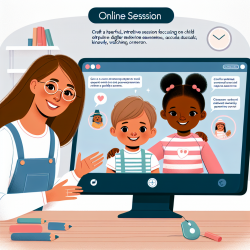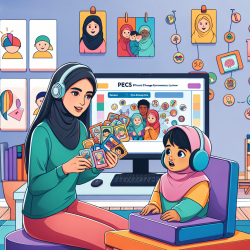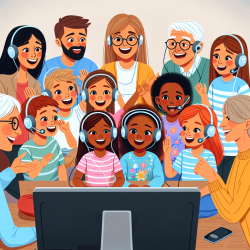The COVID-19 pandemic has undeniably reshaped many aspects of our lives, including the way we approach education. For practitioners working with children and young people with Special Educational Needs (SEN) and disabilities, the crisis has presented unique challenges and learning opportunities. A recent study titled "Learning from the COVID crisis for educating children and young people with SEN/disabilities" published in the Journal of Research in Special Educational Needs offers valuable insights that can help practitioners enhance their skills and improve their service delivery.
Key Findings from the Research
The study outlines several critical findings that can guide practitioners in improving their approach to special education:
- Embrace Flexibility: The pandemic forced educators to adapt quickly to remote learning environments. This flexibility can be beneficial when integrated into traditional teaching methods, allowing for more personalized and responsive education plans.
- Utilize Technology: The shift to online platforms has shown that technology can be a powerful tool in special education. Online therapy services, like those provided by TinyEYE, have proven effective in delivering consistent and high-quality support.
- Focus on Mental Health: The crisis highlighted the importance of mental health support for both students and educators. Incorporating mental health resources and training can enhance the overall well-being and academic success of students with SEN.
- Collaborate with Families: Increased communication and collaboration with families have been essential during remote learning. This practice should continue to ensure that educational strategies are well-aligned with the needs of the students.
Implementing the Findings in Your Practice
Here are some actionable steps to integrate these findings into your special education practice:
- Develop Flexible Education Plans: Create Individualized Education Plans (IEPs) that allow for adjustments based on the student's changing needs and circumstances. Flexibility can be built into the goals, methods, and assessment strategies.
- Leverage Online Therapy: Incorporate online therapy services to supplement in-person sessions. This can be particularly useful for students who may have difficulty attending school due to health concerns or other barriers.
- Prioritize Mental Health: Offer regular mental health check-ins and provide access to counseling services. Training staff to recognize and address mental health issues can also be beneficial.
- Engage with Families: Establish regular communication channels with families. Virtual meetings, newsletters, and collaborative platforms can help keep everyone informed and involved in the student's education.
Encouraging Further Research
While the study provides a robust foundation, ongoing research is crucial for continually improving special education practices. Practitioners are encouraged to stay informed about the latest developments and contribute to the field through their own observations and experiences. Participating in conferences, reading relevant publications, and engaging in professional networks can provide valuable opportunities for learning and growth.
To read the original research paper, please follow this link: Learning from the COVID crisis for educating children and young people with SEN/disabilities.










